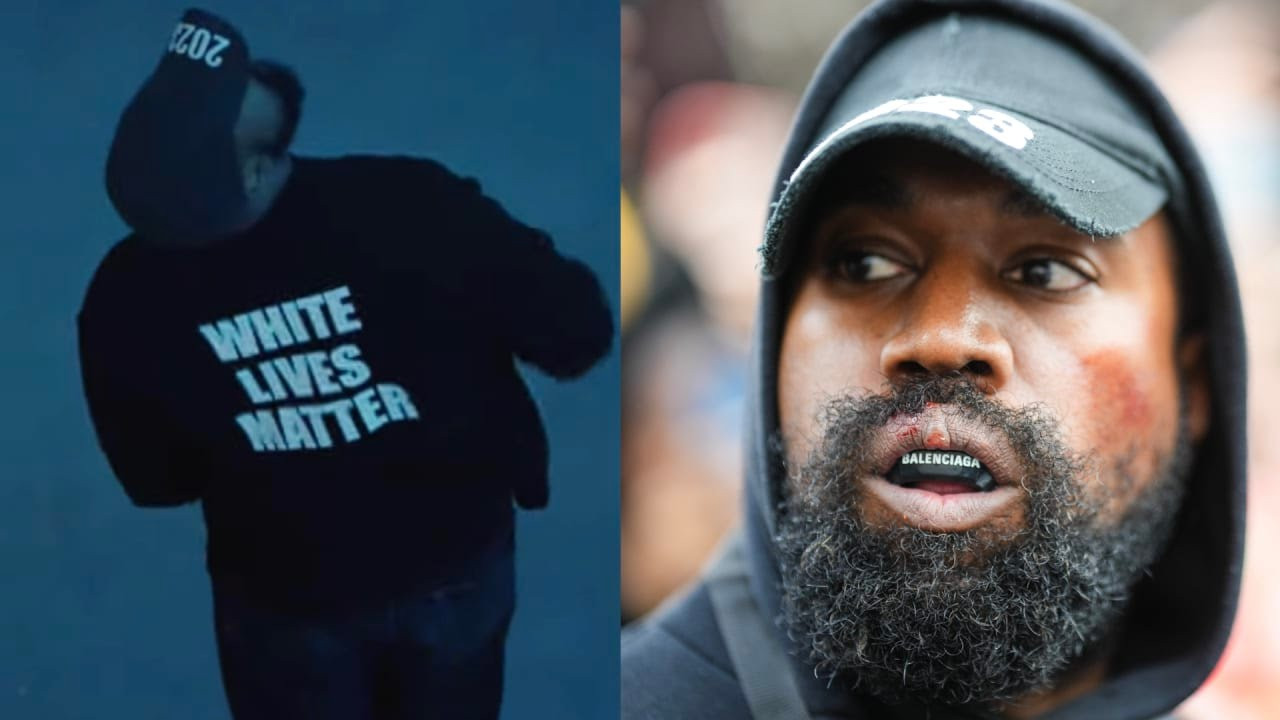Kanye West can’t sell his “White Lives Matter” T-shirts legally in the US, as the trademark for the controversial phrase is owned by Ramses Ja and Quinton Ward, two Black activists who host the nationally syndicated radio show Civic Cipher
Kanye sparked outrage last month when he debuted the “White Lives Matter” designs during the YZY Season 9 fashion show. The phrase has been widely criticized as a flippant response to Black Lives Matter, a global social movement that aims to combat police brutality and racially motivated violence.
According to ABC News, the activists who live in Arizona said they were gifted the trademark from an anonymous benefactor who secured ownership of the phrase sometime in September, shortly before Kanye unveiled his “White Lives Matter” shirts during Paris Fashion Week.
“Basically, a listener of the show—a big supporter—had the foresight to acquire this trademark and felt that we were in a much better position than they were to determine how it could be used for the benefit of Black and brown communities, rather than as a tool to create more additional harm on those communities,” Ja said. “… We accepted this responsibility and the trademark was assigned to Civic Cypher LLC.”
Ja went on to explain that no one in America can legally sell any “White Lives Matter” products without receiving their authorization. He said anyone who was trying to generate a profit from the phrase would have to enter negotiations with their legal team, and potentially face a lawsuit; however, Ja insisted that isn’t something they necessarily want to do.
“I recognize that one of two things could happen. Someone could come to our lawyer or us and say, ‘Hey, you have the exclusive right to make and sell those clothes in the United States of America. I would like to buy the trademark for millions of dollars,’” Ja told Capital B News. “If we were to sell that trademark, for whatever amount of money, we could donate that money to causes that we feel would benefit Black people, like the NAACP or Black Lives Matter organizations. Because, realistically, we cannot stop the shirts from being made right now. We can write cease and desist to people selling these shirts right now, but that is a big monster that requires teams of lawyers and thousands of dollars that we do not have.”
The two also said they’ve not had any conversations with Kanye’s team, and are unaware if his team made any effort to reach out.
Ja told Capital B News said he was hurt to see Kanye pushing the phrase, but not necessarily surprised.
“I do my best to try to remember the Kanye that I knew in ’04 and ’05,” he told the publication. “The Kanye that said George Bush doesn’t care about Black people. I have to focus on the fight at hand. … We’ve got people running for office right now, and we have people trying to suppress our vote and disenfranchise us. There are new voting laws being written in Alabama and Mississippi that have ripple effects across the country. I can’t spend all my time worrying about what Kanye is saying.”

